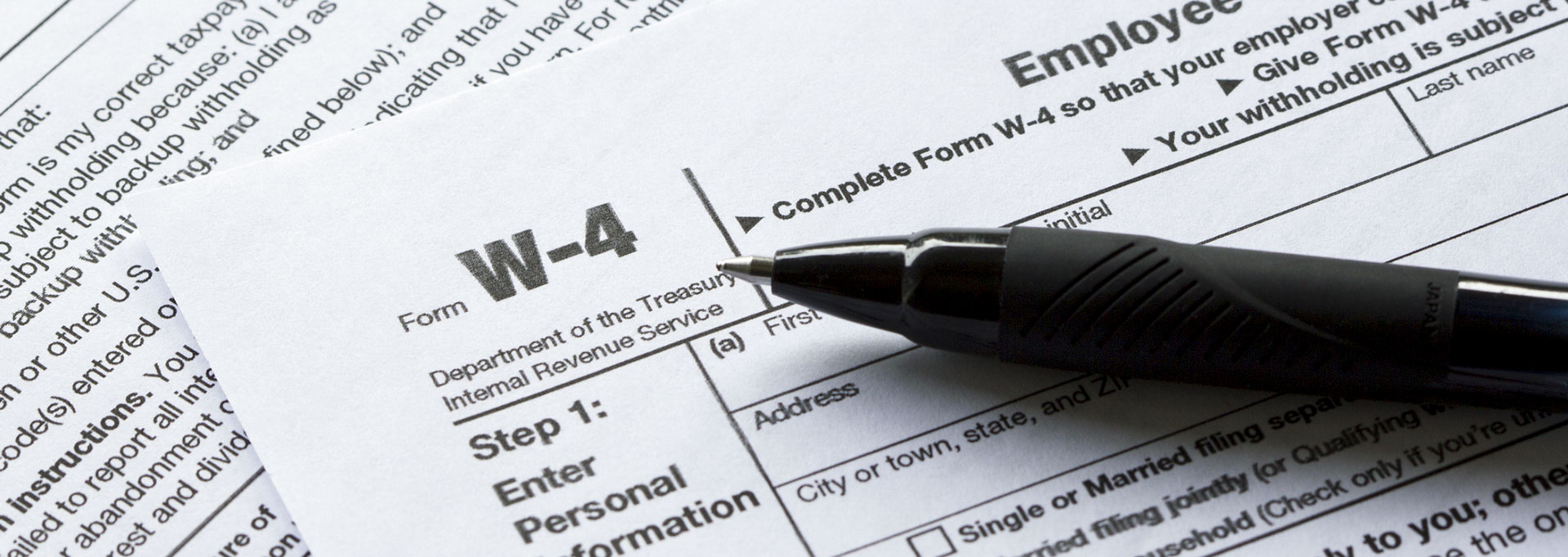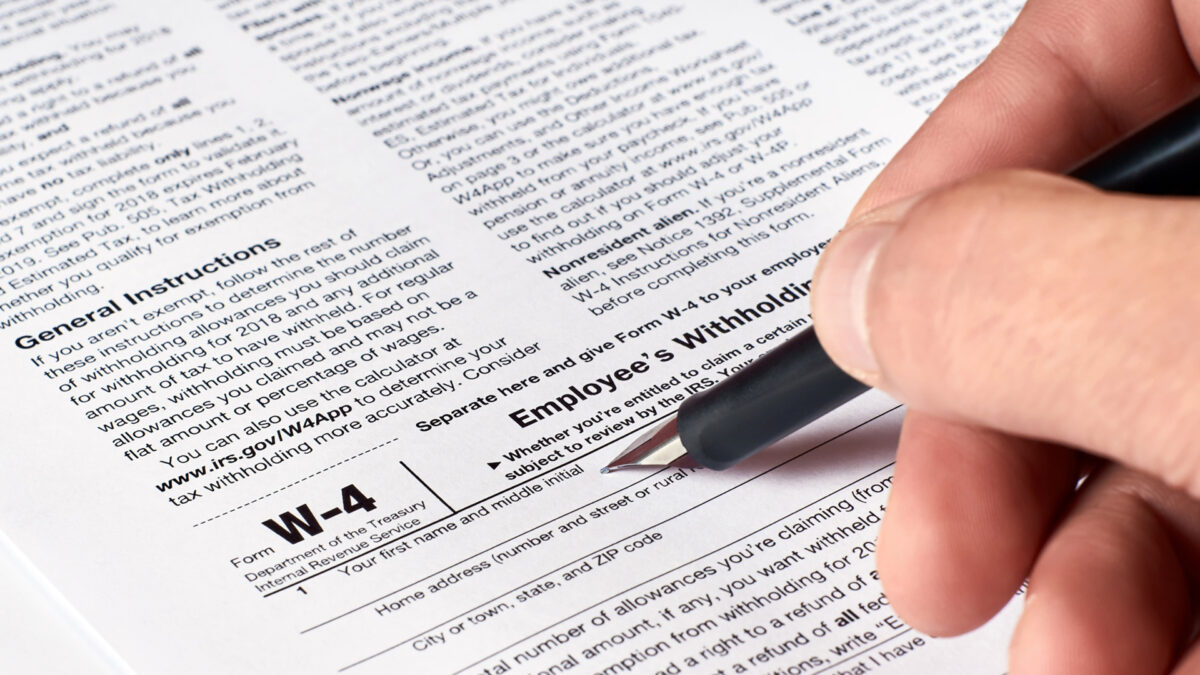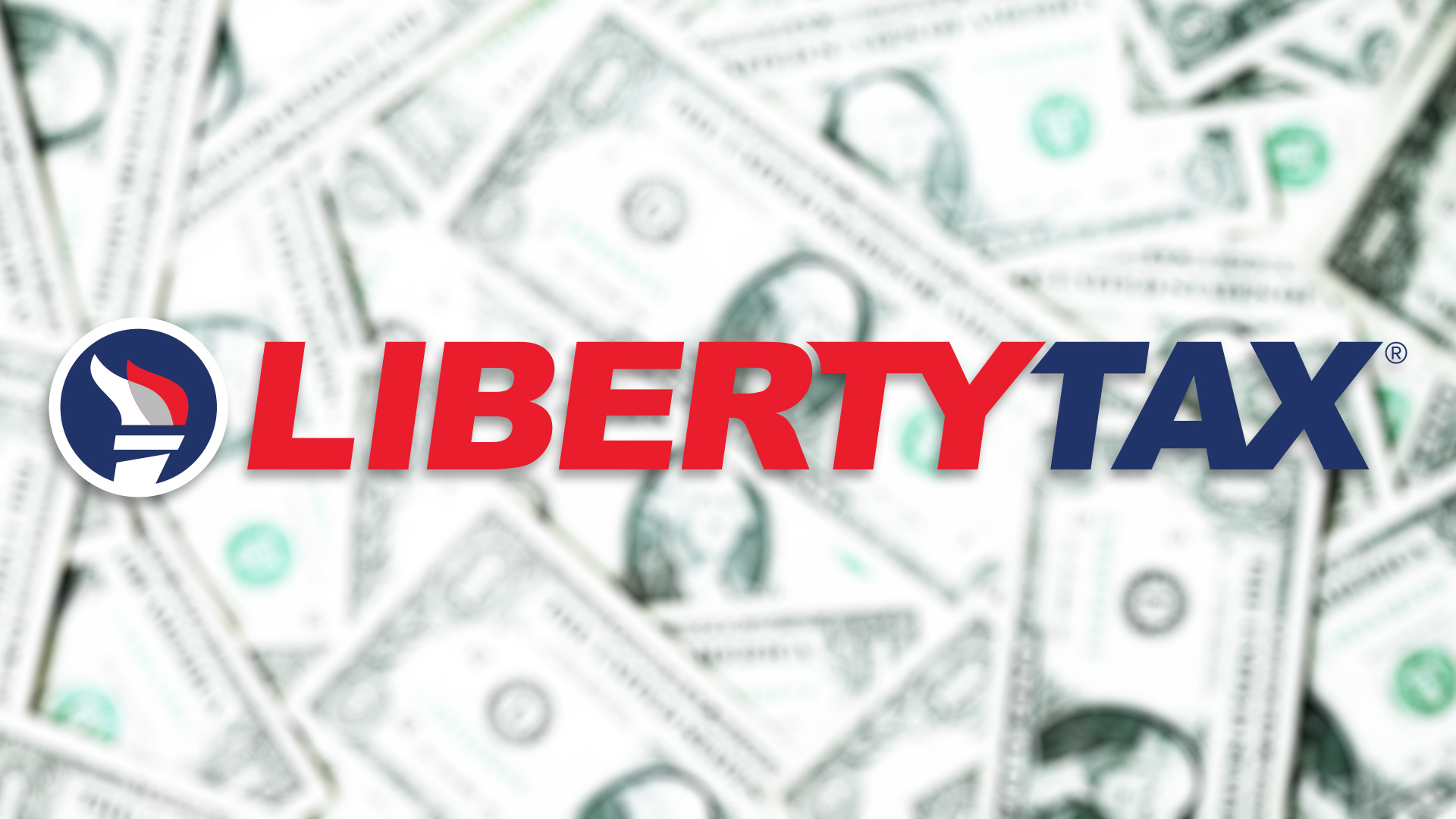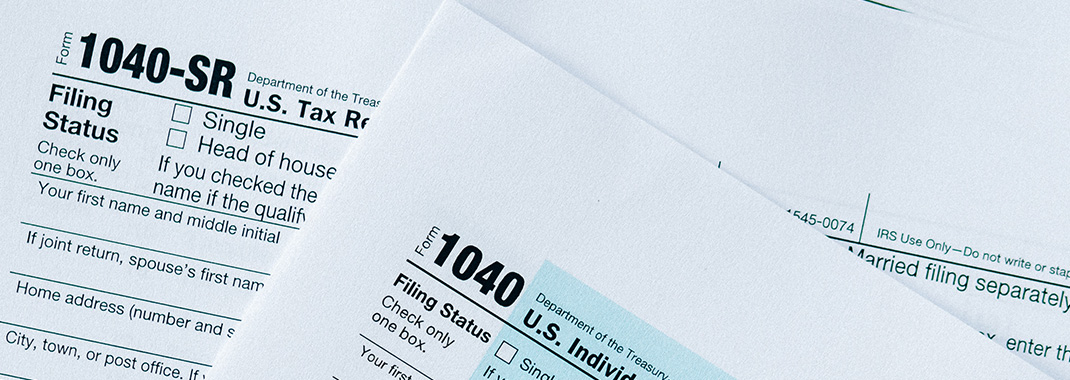Most products on this page are from partners who may compensate us. This may influence which products we write about and where and how they appear on the page. However, opinions expressed here are the author's alone, not those of any bank, credit card issuer, airline or hotel chain.
Whether you work for an employer or you're self-employed, you're required to pay federal income tax as you earn money.
For self-employed individuals, you'll pay what you owe through quarterly estimated tax payments. But if you're an employee, your employer typically withholds tax from your paychecks and pays the government on your behalf.
Getting your tax withholding right can help ensure that you don't end up with a massive tax bill—and possibly even a penalty. On the flip side, it can also help you avoid paying too much throughout the year. Here's what you should kn
How Does Tax Withholding Work?
Employers are typically required to withhold federal income tax from your paycheck and pay it to the IRS. The idea behind tax withholding is to ensure that you pay what you owe throughout the year instead of having a big tax bill once a year.
To determine your federal withholding, you'll need to fill out a W-4 form. Depending on where you live, you may also need to fill out a state income tax withholding form to make sure you pay what you owe.
Note that federal tax withholding is in addition to your FICA taxes, which consist of the Social Security tax and the Medicare tax, and are mandatory for all employ
Filling Out Form W-4
When you get hired for a job, your employer will ask you to fill out several forms, including Form W-4. This form, which includes worksheets for more complicated situations, will help determine how much your employer withholds from each of your paychecks.
The amount of income tax withheld from your paycheck will depend on a few different factors, including:
- Income: The higher your income, the more you can expect to have withheld.
- Filing status: A married couple who files a joint tax return typically has a lower tax liability than a single person earning the same income. As a result, the married withholding rate is generally lower.
- Certain adjustments: The W-4 form will also ask you how many dependents you have, whether you have multiple jobs or—if you're married—whether your spouse works. All of these things can reduce your withholding amount. Additionally, you can request additional adjustments based on your expected itemized deductions.
- Extra withholding: If you want taxes withheld for additional income that won't have withholding, such as interest, dividends or retirement income, you can ask your employer to withhold that from your earned income. You can also request additional withholding for any other reas
on.
If you're having trouble with the form or its worksheets, you can also use the IRS tax withholding estimator tool.
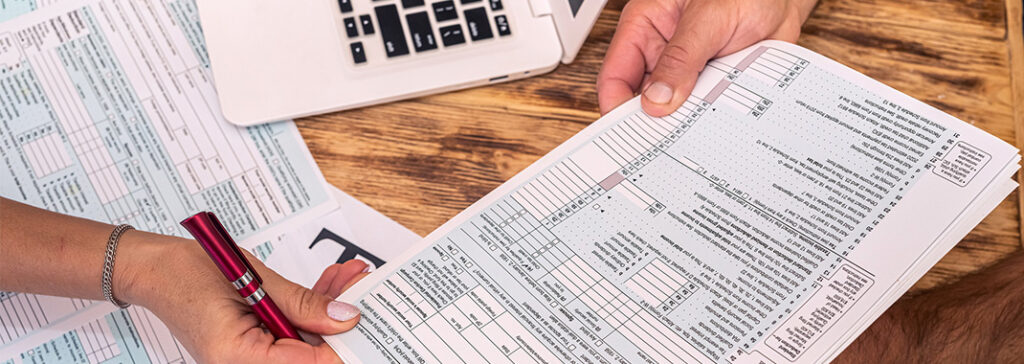 Related Article
Related Article
The Average Cost of Getting Your Taxes Done Might Surprise You
Can I Be Exempt From Tax Withholding?
In certain circumstances, you may be able to avoid having federal income tax withheld from your paycheck. To qualify, you must meet two requirements:
- You owed no federal income tax in the previous year: Your tax return from last year shows zero total tax on line 24, or you weren't required to file a return because your income was below the filing threshold for your filing status.
- You expect to have no federal income tax liability: You don't expect your financial situation to change enough to require you to pay income taxes for the current tax year.
If you qualify for an exemption, follow the instructions on the W-4 form to certify it. Keep in mind, though, that being exempt from federal income tax withholding doesn't affect the requirement to pay FICA taxes. Also, note that you'll need to recertify your exemption each yea
Why It's Important to Get Your Withholding Right
It may be tempting to speed through the W-4 form, but it's crucial to take your time and make sure your withholding is accurate for your financial situation. Here's what can happen if you have too little or too much withheld.
Underpayment
Having less of your paycheck withheld to pay income taxes will increase how much you have to spend and save throughout the year. But if you don't pay what you owe, you'll end up with a tax bill when you file your annual tax return.
What's more, the IRS may assess an underpayment penalty, which is calculated based on the amount you underpaid, the period when the amount was originally due and the current interest rate for underpayments (currently 8%).
To ensure you don't get hit with an underpayment penalty, you'll need to pay at least 90% of the amount you owe for the current tax year or at least 100% of the tax shown on the return for the prior year, whichever is les
Overpayment
If you have more of your income withheld for taxes than you need, you may end up with a sizable tax refund. In fact, the average tax refund for individual income tax returns in 2023 was a whopping $3,167, according to the IRS.
While some tax optimizers argue that it's a tax-free loan to the government, having a little extra withheld from your paycheck can be a budgeting tactic, especially if you're more likely to put a tax refund toward savings and debt than you are a little extra cash each month.
That said, having too much withheld can put a strain on your budget, making it difficult to manage your necessary expenses, financial goals and lifestyl
When to Review Your Withholding
Starting a new job isn't the only time to evaluate your income tax withholding. The IRS recommends checking your withholding each year, preferably early on. This may be especially beneficial if you recently had an unexpected tax bill or a large tax refund.
Additionally, the federal tax agency suggests reviewing your withholding when there are changes to the tax law that could affect how much you owe, as well as when you experience a major life change, such as:
- Marriage
- Divorce
- Birth or adoption
- Home purchase
- Retirement
- Significant change in household income
Finally, consider an evaluation if you're expecting to earn taxable income that isn't subject to withholding, such as self-employment, retirement distributions, capital gains or interest, or if you anticipate significant itemized deductions or tax credits for the current tax ye
 Related Article
Related Article




